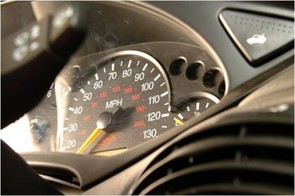
How does mileage affect depreciation?
Hi Shane, I wonder if you could offer advice or point me in the way of relevant data in relation to the degree to which mileage feeds into the depreciation in a car's value. Obviously there are a few variables such as the car make and model and its age. I'm interested to find out if a car driven say 20,000kms in a year has a value "X" euros at the end then by what additional amount would it's value depreciate if instead it was driven 40,000kms in the same year? Is there a rule of thumb that can be applied? Thanks.
Our answer:
Hi Andrew,
The short answer is; no.
The long answer is, it’s complicated. How much time have you got? You see, the general rule of thumb that we always give to buyers is to buy on condition and history, not age and mileage. Mileage is, in many ways, something of a fallacy. After all, there are Volkswagens and Volvos out there that have done better than one milion miles, thanks to care and regular maintenance. Equally, there are all makes of car with mileages in the low five figures that are beaten, battered and half way to the scrapyard.
Even so, the trade doesn’t see it in quite the same way and, yes, mileage does add another variable to the valuation. The problem for us is that SIMI and the rest of the Irish car trade has never produced, as is done in the UK and other markets, a proper ‘Black Book’ system for estimating future vehicle values.
So, there’s no way of telling exactly at what point mileage goes past a certain limit and starts to adversely affect value, but you can at least make some educated guesses based on what sort of ownership profile the car would have. So a small city car or supermini should have a mileage that works out at around 10-16,000km per year. A larger hatch or saloon, or a premium saloon, is likely to have done much more mileage (not least because many will have been company cars) so factor in 20-25,000km annually. Large luxury cars and SUVs, the same. For more expensive cars (and I’m talking boutique sports cars here) mileage is the real enemy – anything much over five figures per year will cripple the value of cars like Porsches, Ferraris and Aston Martins. Not that that need really worry us…
So, do your calculations. Divide the car’s mileage by its age and see what the average is. If it’s over the average (and by a significant amount, not just a few thousand kilometres) then you should offer or ask for less. Much under (and again, a significant amount) then you might want to pay or ask a bit more. But again, please remember, that it’s only really about finding the final nth degree value of the car. If a higher mileage car has a full and spotless service history and its metalwork shines like the early light of dawn, then it’s still a much better buy than a low-miler that’s not been looked after.

Have a motoring question? Ask us here!
Ask us anything motoring related and please provide as much information as possible so we can give you the most accurate advice.